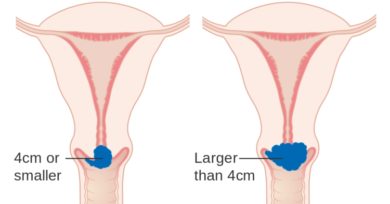
Early Detection of Cervical Cancers is the key to increasing the overall chances of survival when confronted with this common and dangerous disease. It is vital to understand the following early symptoms as they relate to the early stages of cervical cancer: Vaginal Bleeding (between periods, after sex or pre-menopausal) Abnormal vaginal bleeding (usually heavy and with a fishy odor)
If you are experiencing any of these symptoms you may be at risk for cervical cancer. A woman with any or all of these symptoms should see her doctor as soon as possible.
The cancer that causes cervical cells to spread to other parts of the body begins as a small lump under the surface of the skin. Once it develops, the cancer spreads to other areas of the body through the blood stream. This means if you develop any of the symptoms outlined here, your doctor can tell whether the condition is indicative of cervical cancer or not. There are many other symptoms that are also possible indicators that it is time to get tested.
These symptoms include bleeding during intercourse. Other symptoms to watch for include abnormal vaginal bleeding (usually heavy or with a bad odor), pelvic pain during sexual intercourse, vaginal spotting, pelvic pain during urination or bleeding after sexual intercourse. It is important to be aware that these symptoms do not necessarily mean that you have cancer. However, a health care provider should always be consulted if any of these symptoms occur.
If none of the above symptoms occur, you should be able to live a normal life. However, if you have any or all of the following symptoms, you should immediately seek medical attention to determine the best course of action.
Symptoms of cervical cancer that are more than just vaginal bleeding or pelvic pain include: difficulty having a bowel movement, pelvic pain during intercourse or having painful urination, weight loss and swelling of the breasts or testicles, abnormal vaginal bleeding, pain during sex or during bowel movements and infertility. , as well as abnormal bleeding during pregnancy or miscarriages. when used in conjunction with any other symptoms you may be at risk for cervical cancer.
Be sure to have any and all of these symptoms looked at by your doctor

If you are a woman who has recently been pregnant or just recently had intercourse you should discuss any symptoms you may be having with your doctor. If you have had any of these symptoms recently, and you experience any or all of them at one time, you should schedule an appointment with your doctor immediately. Your health care provider may want to perform a Pap smear, pelvic exam or MRI exam to determine the extent of the problem.
There are several things that can lead to symptoms of cancer and all of these factors may need to be addressed to ensure that you are healthy and well. Early detection is key and this can only be done with an appointment with your doctor to discuss your symptoms and your family history.
Symptoms of cervical cancer can be quite painful and may take quite some time to go away. Most women who have these symptoms have an average of two episodes. The first episode lasts anywhere from a few weeks to a few months and the second episode lasts from a few months to about three years.
When it comes to treatment, the earlier the symptoms are discovered, the better your chances are of being able to receive the best treatment. Some treatments that are available can start to reduce or even stop the growth of tumors that have already formed. if detected early enough. If these symptoms of cancer have been present for a long time without treatment, there are treatments available such as surgical removal of cancerous cells or radiation therapy. that can completely eliminate the cancer.
Signs of cervical cancer that are more complex or hard to detect may require a visit to the doctor. A routine Pap smear, a pelvic exam or MRI scan can provide much needed information. about the condition and can help in determining the best course of action. If the doctor determines that cancerous cells have developed, the doctor can order tests that can determine the type of cancer and the type of treatment needed.
As you can see there are many different reasons why these symptoms may be present and they are not necessarily signs of cancer. Cancer is something that should be taken very seriously. A visit to your doctor is always recommended and it is also important to be aware of any changes in the cervical area that you may notice.

